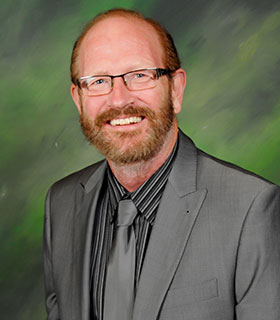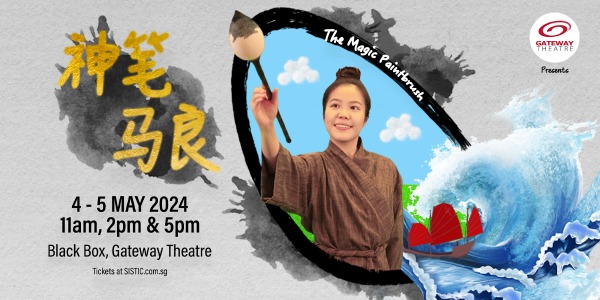Interview with Brian Caswell: What Parents Can Do to Prepare Their Kids for the Future
We witnessed how technology has changed the world today and revolutionised the way we work. As some of the “safe” jobs today may disappear in the future, what can you as a parent do to prepare your kids for the future?
 Check out our exclusive interview with Brian Caswell, Dean of Research and Programme Development at MindChamps, as he sheds light on the skills that are important for our children to succeed in life.
Check out our exclusive interview with Brian Caswell, Dean of Research and Programme Development at MindChamps, as he sheds light on the skills that are important for our children to succeed in life.
Q: For a start, can you share with us your typical work day at MindChamps?
The great thing about my role at MindChamps is that there is no ‘typical’ work day, because our philosophy is to be ‘ahead of the curve, but never ahead of ourselves’. As the person in charge of research and programme development, my role requires me to be involved in all aspects of MindChamps’ work, from pre-school to tertiary level – and much of my work involves the research and development of future initiatives – including a focus on evaluating the latest discoveries in neuroscience, psychology and education, with a view to enhancing what we do ‘on the ground’ based on the new insights.
As we collaborate with experts from four continents, part of my role involves international travel – which I love. But with modern communication technologies, I can get much of my work done through accessing papers and information via the Internet, and communicating through ‘face-to-face’ link-ups online.
I also get to exercise my creativity in a number of areas from writing books (for children and adults) to writing and recording training videos based on the work we are doing at any given time and providing articles and interviews for media outlets. I have even written and composed two musicals performed by our pre-schools.
I travel to Singapore six to eight times a year to work with the curriculum and training teams, and this gives me the opportunity to see how our work has translated ‘on the ground’ in classrooms and pre-schools across the island.
Q: Should parents encourage their children to pursue their passion even if these careers may be obsolete in the future? Why?
One of the biggest mistakes we can make is to try to ‘channel’ children into avenues or careers which we see as safe and lucrative. The truth is that we simply don’t know which jobs will be ‘obsolete’ in the near future – nor which careers, based on jobs which do not yet exist, will create the ‘success stories’ of the coming century.
Someone who pursues a passion learns many skills which are transferable from one domain to another. On the other hand, a child who ‘studies’ for a particular career ‘because it is a good job’, but is less than passionate about the learning process tends to indulge in learning that is ‘non-transferable’ (that is, knowledge-based, rather than skills-based).
In a changing and changeable world, this is a very dangerous approach, as what may seem a certainty for future prosperity today can become obsolete within months or years as new inventions and technological advances ‘move the goal posts’.
Passion breeds innovation and innovation is the most important attribute a citizen can have in a rapidly-evolving society.
Q: Should we make use of technology (the Internet, smartphones, tablets etc) to engage and prepare our children for the future?
Technology is a fact of life, and we ignore it at our peril. The modern gadgets and technology are certainly useful in engaging children, but that is not the main reason for using them in a classroom/homework/research situation. The availability of information online is a fact of their lives. Books are no longer the primary source of information – or opinion. But the Internet is a double-edged sword. It promises so much and is capable of providing great benefit, but unless we are ‘internet-literate’, unless we can think critically and analytically about what is served up for us, we will never be able to separate information which is ‘good’, (reliable, useful and relevant) from that which is ‘bad’ (false, of limited value or irrelevant to the task at hand).
Most children are very good at manipulating the technology – far better than us, in fact. What they lack are the critical and analytical thinking skills and the research tools they will need to navigate a growing ocean of fact and unfact. With a balanced approach to the use of technology in learning, we can develop these key skills in all children.
Q: Personally, how do you educate your children / grandchildren?
Any parent or grandparent (or great-grandparent) can only really ‘educate’ their successors through example. I read with all my grandchildren (when I get to see them) and try to fire their imaginations with games, activities, questions and challenges.
The secret is to remember that it is not what you say to children that makes a difference in the long run – nor even what you ‘teach’ them. In the end, it is what you do; it is your example that they learn from – for good or bad – so be aware of what you are teaching them when you are not consciously ‘teaching’ them.
Q: What do you think is the most important thing a child should learn during his pre-school days?
To enjoy learning. To be interested in everything. To understand that all learning is play – and all play is learning. That life is an adventure to be lived and a question to be explored – not a list of facts to be learned.
Q: Finally, what differentiates MindChamps from the rest in the industry?
I believe that the thing which differentiates MindChamps from the rest is the philosophy upon which we were founded. Our purpose has always been to find the gaps that exist in society and fill them.
This means that in designing education programmes, we must take a wider view of what we are setting out to achieve. It is not enough to prepare children for exams, simply because exams are important here and now. If our children are truly prepared for whatever our changing environment will throw at them into the future, they will still be able to do well in today’s exams, but they will be prepared for so much more. So, we focus on skills, creativity and developing the right mindsets. This way, we teach for success both in the limited and limiting environment of an education system struggling valiantly to keep pace with the accelerating rate of change brought about by the Information Revolution, and in the world of the future, the nature of which most of us can only guess at.
Keen to know more about MindChamps PreSchool? Book a visit.






Give your Opinions